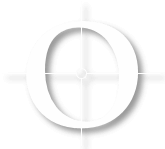Customer satisfaction and customer retention are largely determined by satisfaction with the handling of individual business transactions. In order to optimize the quality of the performance of certain business transactions, the customer is therefore interviewed in close temporal relation to such a business transaction. The transactions to be analyzed with an after sales survey can be high-frequent transactions (from the company’s point of view) like account openings as well as lower-frequent but high volume business transactions (e.g., real estate purchase / sale, mortgage).
As a result, the satisfaction of the customers with advice, products and service of the client’s company and the respective starting points for improvements are clearly shown. Similarly, cross-selling and up-selling activities of employees can be measured and assessed in order to be able to initiate internal improvement activities afterwards.
Not every demand-induced contact is also concluded with a purchase. The variant as an after-non-sales survey provides information on when and for what reasons the purchase process was interrupted in order to identify possible barriers and eliminate them for the future.
- CUSTOR’s after-sales survey provides you with up-to-date information about your customers’ specific business transactions, which cannot surveyed appropriately in classic customer surveys due to their low frequency.
- Thanks to the detailed data analysis and action-oriented reporting structure, the client’s service performance can be optimized in a targeted and cost-efficient manner.
CUSTOR’s after-sales survey provides you with the following content in particular:
- pre-sales information behavior of the customer
- customer expectations in terms of company, products and services
- customer satisfaction
- evaluation of advice and service (contact person, initiative, opening times, access routes, etc.)
- customer loyalty and its determinants
- reasons for choosing the company
- company image (total & partial dimensions)
- competitive edge
- product usage (current & future)
- reasons for the choice of product or service
- re-purchase and recommendation
- cross-selling activities
- cross-buying activities and / or customer’s intention
- customers’ suggestions for improvement
- statistics / sociodemographics
The questionnaire is always developed in close cooperation with the client so that there is enough room for company-specific questions.
If the sample size is sufficient, in-depth evaluations at the subgroup level (total / market areas / branches) will allow you extensive internal benchmarking.
The criteria for successful sales do not match the ones of failure: Therefore, a suboptimal or even non-existing performance on one of the latter (which are often taken for granted) will almost inevitably prevent a transaction.
In order to detect these failure criteria, it may be expedient to interview customers who have not completed the sale. Such an “after-non-sales approach” provides much more information about which mistakes should be avoided or which weaknesses should be improved than the classical after-sales approach could do. It is therefore recommended as a “crisis instrument” whenever closing figures are well below previous values, forecasts or potential estimates.
Since the business transactions to be considered are often too far apart in time to be able to use telephone interviews cost-effectively, after-sales surveys are in most cases carried out as online surveys.
In exceptional cases – such as with b2b customers – telephone or even personal interviews can also be used.
Usually, the completed interviews will be collected and evaluated for certain periods of time.
Regarding after-sales surveys, there is usually no sampling; normally all customers who have carried out the specific business transaction are going to be interviewed.
However, CUSTOR recommends not to fall short of a subgroup size of 100 participants for after-sales surveys either, as there is a considerable loss of statistical quality below this limit.
- methodical consultation, survey design and project management
- questionnaire development, programming and pretest
- recruiting of the participants
- organization of fieldwork (recruiting of participants, service hotline)
- conducting the interviews and field control
- coding of open ends
- computer-aided data analysis
- tables
- chart report (about 30 pages) containing management summary and recommendations for action
- presentation of the results to the client




